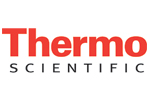Other Track AgendasAdvances in Biodetection & Biosensors | Advances in Microarray Technology | Advances in Protein Crystallography | Advances in Separation Technology | AgriGenomics Congress | Lab-on-a-Chip European Congress | Next-Gen Sequencing Europe | Screening Europe - HCS and Assays | Screening Europe - HTS & Compound Management | World Biobanking Summit |

Thursday, 30 June 201108:00 | Registration | |
Session: NGS Analysis in Disease Identification |
| | 09:30 | Revolution in Disease Gene Identification - Exome Sequencing
Alexander Hoischen, Post Doctoral Researcher, Radboud University, Netherlands
Exome sequencing has lead to a revolution in disease gene identification. Recent breakthroughs show the potential of this technology and the unprecedented speed with which especially Mendelian disease genes are now identified. | 10:00 | Medip-Seq Genome Wide Analysis of the Methylome
Andrew Feber, Post Doctoral Researcher, University College London, United Kingdom
Next-generation sequencing technologies have emerged as powerful tools to allow, whole-genome profiling of epigenetic modifications, including DNA methylation (methylome). Analysis of methylome allows us to ask and answer more intricate questions of how DNA methylation effects the malignant genome. | 10:30 | Coffee and Networking in Exhibition Hall | 11:15 | Cancer Methylome Profiling using Methyl-DNA Capture
Arjen Brinkman, Research Scientist, Radboud University/Nijmegen Center for Molecular Life Sciences, Netherlands
This talk will discuss: Methodology for NGS-based DNA methylation analysis in cancer, methylCap-seq technology for methylated-DNA capture and fractionation, small-scale and large-scale validation of MethylCap-seq, identification of differentially methylated regions within unique and repetitive regions of the genome and classification based on whole-genome DNA methylation profiles. | 11:45 | Genomic Instability and the Evolution of Cancer
Francesca Ciccarelli, Group Leader, European Institute of Oncology Milan, Italy
Cancer is often associated to genomic instability, defined as the dynamic acquisition and propagation of genomic modifications. In several cases these modifications are causally implicated in the initiation and development of the disease. The latest improvements in sequencing technologies have boosted the discovery of cancer-associated modifications, thus allowing the investigation of several aspects of cancer genomic instability. In this talk, our contribution to the understanding of the genetic and genomic determinants of cancer will be presented. Particular emphasis will be laid on the properties of genes whose mutations are causally implicated in cancer and on the detection of cancer-associated genomic instability. | 12:15 |  Technology Spotlight: Technology Spotlight:
NGS Sample Prep Simplified - The Beckman Coulter Continuum of Automated Sample Preparation
Christoph Krull, Product Manager Europe, Beckman Coulter
| 12:30 | Lunch and Networking in Exhibiton Hall | 12:45 |  Free Workshop Free Workshop
Advancement of Separation, Purification and Crystallography from Agilent Technologies
,
| 13:15 | Poster Viewing | 13:30 |  Free Workshop Free Workshop
High Content Screening for Compounds and Genes Affecting Bacterial and Viral Infections
,
| 14:15 | Mate-Pair Sequence Analysis of Somatic and Germline Structural Variation in Human Genomes
Wigard Kloosterman, Assistant Professor, University Medical Center Utrecht, Netherlands
Mate-pair sequencing is a powerful tool to detect structural genomic variation at high resolution. We are using this technology to understand the mechanisms and contribution of structural variation to congenital defects and cancer. | 14:45 | Genetics of Coronary Artery Disease. From GWAS and Beyond
Jeanette Erdmann, Professor and Head, University of Lübeck, Germany
After the great success of genome wide association studies the time is now ready to apply next generation sequencing technologies to fully explain the genetic basis of coronary artery disease and myocardial infarction. | 15:15 | Coffee and Networking in Exhibition Hall | 16:00 | Expanding Sequencing Applications using Target Enrichment and Application to Complex Diseases Research
Emily Leproust, Director, Agilent Technologies Inc, United States of America
During this presentation you will learn how in-solution target enrichment can be applied to discover and profile SNPs, InDels and CNVs in Mendelian and complex diseases research. | |
Session: Current and Future Challenges in NGS |
| | 16:30 | Evaluation and Characterisation of a 3rd Generation Single Molecule Sequencer
Michael Quail, Team Leader, Wellcome Trust Sanger Institute, United Kingdom
Sanger Institute became the first laboratory within Europe to install a 3rd generation Sequencing platform. In this presentation we will detail the results obtained from our evaluation and characterisation of the Pacific Biosciences RS single molecule sequencer. | 17:00 | Latest Advances in Covaris AFA DNA and ChIP Shearing, Emulsion PCR and SNP Validation
Phil Robinson, Managing Director, KBioscience, United Kingdom
| 17:30 | Color-Encoded Particles as a Platform for Next Generation DNA Sequencing
Vera Gorfinkel, Professor, State University of New York/Genometrica Ltd, United States of America
A novel approach to high throughput DNA sequencing is presented, based on cycle sequencing of DNA molecules amplified on the surface of micro-beads encoded with compositions of quantum dots, and very fast, single-photon sensitive, and highly accurate detection and recognition of the beads' color codes. | 18:00 | Drinks Reception |
Friday, 1 July 201108:00 |  Free Workshop Free Workshop
PCR without DNA purification – Thermo Scientific Direct PCR
,
| 09:00 |  | Keynote Presentation Southern African Genomes – Human History Written in DNA
Vanessa Hayes, Professor, J Craig Venter Institute, United States of America
Recent genetic studies suggest Southern Africa as the birthplace of modern humans. We explore this history in the genomes of click-speaking Khoisan hunter-gatherers of the Kalahari desert, along with neighboring Bantu agro-pastoralists. A complex genetic profile of Southern Africa is beginning to emerge. |
| |
Session: Gene Expression and Regulation |
| | 09:30 | Genome-Wide Mapping of Chromatin Modifications
Paul Hurd, Principle Investigator, Queen Mary University Of London, United Kingdom
The application of next-generation DNA sequencing to mapping histone modifications in the human genome will be discussed. Data will be presented describing the landscape of six histone tri-methylations and the relationship to gene transcription status. | 10:00 | Characterisation and Identification of Genes Regulated by DNA Modification
Richard Meehan, Leader/Senior Scientist, Western General Hospital, United Kingdom
Analysis of DNA modification in vertebrates is at a crossroads with the recent identification of 5-hydroxymethylcytosine (5hC), a 6th base. I will discuss methods to distinguish between 5methylcytosine (5mC) and 5hC in DNA and their use in genome wide analysis. | 10:30 | Coffee and Networking in Exhibition Hall | 11:15 | New NGS Strategies in Sample Preparation for High Sensitivity Identification of Gene Variations, Transcriptomes and Genomes
Joakim Lundeberg, Professor, KTH Royal Institute of Technology, Sweden
At the new Science for Life Laboratory, Stockholm we have improved the sample preparation for the major NGS platforms for more efficient use of the technology. This lecture will discuss some of these improvements and also demonstrate the use of NGS to perform molecular archeology, correlation of transcriptomes with proteomes and analysis of genomes. | 11:45 | De Novo Assembly and Validation of a Metazoan Transcriptome by Massive Parallel Sequencing and Shotgun Proteomics
Wei Chen, Senior Scientist and Group Leader, Max Delbruck Center for Molecular Medicine, Germany
An efficient sequencing strategy that allowed our group to de novo assemble a major fraction of a metazon transcriptome and the careful evaluation of the performance will be presented. | 12:15 | Lunch and Networking in Exhibition Hall | 12:45 |  Free Workshop Free Workshop
Glosensor Technology: Intracellular Biosensors to Detect Signal Transduction in Living Cells
,
| 13:30 |  Free Workshop Free Workshop
Automatic High Content Screening for Life Sciences
,
| 13:30 | Poster Viewing Session 2 | 14:15 | ChIP-Seq and RNA-Seq: From Sequence Tags to Target Genes and Beyond
Hendrik Marks, Post Doctoral Researcher, Nijmegen Centre for Molecular Life Sciences/Radboud University, Netherlands
The experimental and bioinformatic workflow of ChIP-Seq/RNA-Seq, Publicly available software tools for ChIP-Seq applications, How to translate ChIP-Seq profiles into affected pathways. | |
Session: NGS Optimisation |
| | 14:45 | Optimized Library Preparation, an Essential Component of Next Gen Sequencing
Masoud Toloue, VP of Genomic Research, Bioo Scientific Corporation, United States of America
Strategies for massive parallel sequencing have revolutionized research across diverse scientific disciplines. Despite these advances, DNA and RNA sample preparations, one of the most important aspects of next generation sequencing, continue to use outdated, biased and cumbersome methods. We will describe our latest DNA and RNA library preparatory methods and how sequencing results benefit from these techniques. | 15:15 | Coffee and Networking in Exhibition Hall | 16:00 | Implementation of Modular Automation for Next Generation Sequencing Library Production in a University Core Facility
John Kenny, Post Doctoral Researcher and Translation Officer, University of Liverpool, United Kingdom
This presentation will detail steps taken at a University-based core facility to increase throughput of sequencing DNA and RNA samples using next generation sequencing via the incorporation of automated methodologies. | 16:30 | Optimization of Multiplex Deep Sequencing Applications
Leonid Bystrykh, Researcher, University Medical Center Groningen, Netherlands
For multiplex deep sequencing applications each sample must be easily discriminated on a basis of unique sample tags. Some strategies utilize Hamming binary codes. Because deep sequencing results are inherently noisy, used sample tags should be on a substantial minimal distance from each other. Otherwise correction of sequence errors and corresponding sequence results is neither possible nor meaningful. It will lead to cross contamination of the data. We have developed several primer design approaches which adapts to a variable extent of multiplexing, the complexity and length of the tag. Further, we employed a network strategy to assess quality and complexity of sequencing data. Limitations of the multiplexing strategy are further discussed. | 17:00 | Close of Conference |
|

 Add to Calendar ▼2011-06-30 00:00:002011-07-01 00:00:00Europe/LondonNext-Gen Sequencing EuropeSELECTBIOenquiries@selectbiosciences.com
Add to Calendar ▼2011-06-30 00:00:002011-07-01 00:00:00Europe/LondonNext-Gen Sequencing EuropeSELECTBIOenquiries@selectbiosciences.com